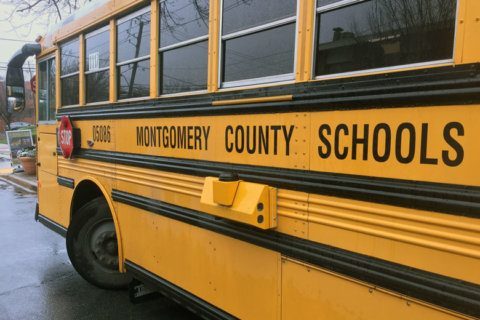The day before a regional panel gets set to take a second look at Maryland’s $3 billion plan to deal with traffic from the American Legion Bridge up to Gaithersburg, the state’s transportation secretary offered support for dedicated bus lanes in Montgomery County.
In a letter to the Montgomery County Council, Transportation Secretary Greg Slater stated that the agency was looking to “further reaffirm our commitment to a multimodal effort” — such as the Corridor Cities Transitway or the Maryland 355 Bus Rapid Transit project — which could be “in conjunction with” Gov. Larry Hogan’s plan to widen Interstate 270 and add toll lanes up to Interstate 70 in Frederick.
The letter came as the region’s Transportation Planning Board plans to reconsider a vote on the toll project.
Last month, the TPB rejected Hogan’s tolling plan, knocking it off a list of long-term projects to be included in a federal air quality study.
Since that vote, which threatened to stall Hogan’s plan, the Maryland Department of Transportation notified the transportation panel that five regional projects would likely be eliminated from consideration, because their funding was dependent on expected revenues from the toll project.
In response to Slater’s letter, five Montgomery County Council members — Hans Riemer, Gabe Albornoz, Andrew Friedson, Nancy Navarro and Craig Rice — released a statement indicating support for reversing last month’s vote by the members of the Transportation Planning Board.
They wrote that Slater’s statement indicating that a commitment to adding funding for bus rapid transit lanes “builds on prior changes we have been asking for,” and that the council hopes to work with Slater “in a way that does not make the much-needed improvement to the American Legion Bridge ineligible for federal approval and funding.”
But Montgomery County Executive Marc Elrich, who is a proponent of bus rapid transit projects, had questions on how the stated commitment achieves the goal of building either the Corridor Cities Transitway or the 355 Bus Rapid Transit projects.
Even with some of the $145 million from the private firms building the toll road, Elrich said, “it’s still not enough to do the project, so it leaves us substantially short” of what it would take to complete bus transit plans.
At the state level, 77 lawmakers signed a letter to the Transportation Planning Board, asking its members to stand by the June 16 vote that removed Hogan’s plan from the long-term study.
Del. Jared Solomon said the toll project would leave commuters on the hook for exorbitant tolls.
“The question is,” he asked, “‘are you going to be comfortable paying potentially upward of $50 in tolls [to a private company]?'”
While opponents of the toll project lobby Transportation Planning Board members not to change their votes in favor of the plan, the Hogan administration has been working to gain support.
Ads from the political action committee, Change Maryland, call opponents of the toll lanes “pro-traffic” and insist that a vote against the plan will doom commuters to more “soul-crushing traffic.”
Hogan has argued the managed toll lanes could break the gridlock at the American Legion Bridge.
Elrich said that he will continue to talk to Prince George’s County Executive Angela Alsobrooks, who has a vote on the board. Meanwhile, Hogan has continued to argue for what he called “real traffic relief.”
Should the TPB vote in favor of adding the toll project to the long-term plan, there are still hurdles ahead, including a vote before the three-member Maryland Board of Public Works.








